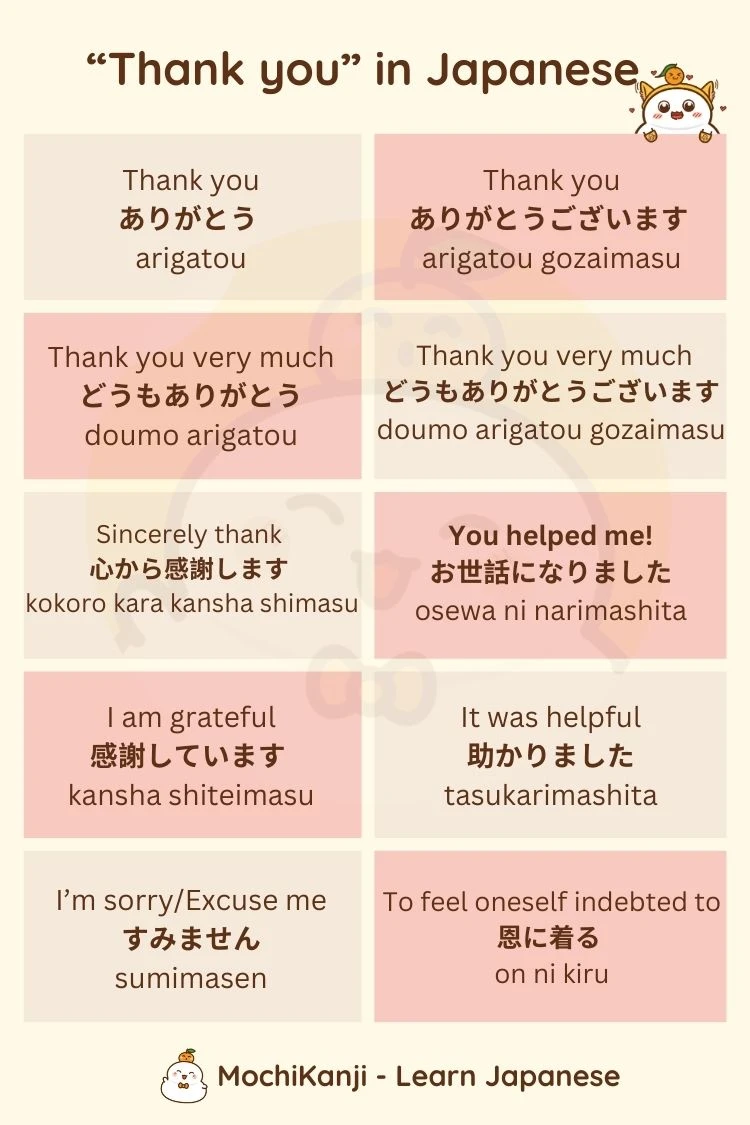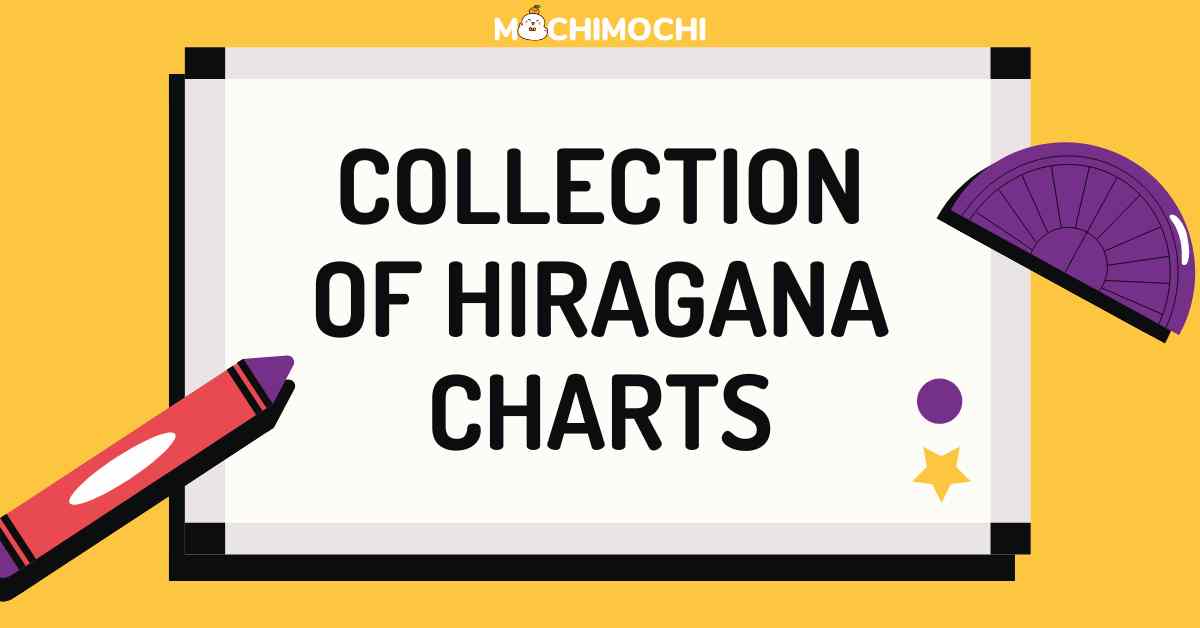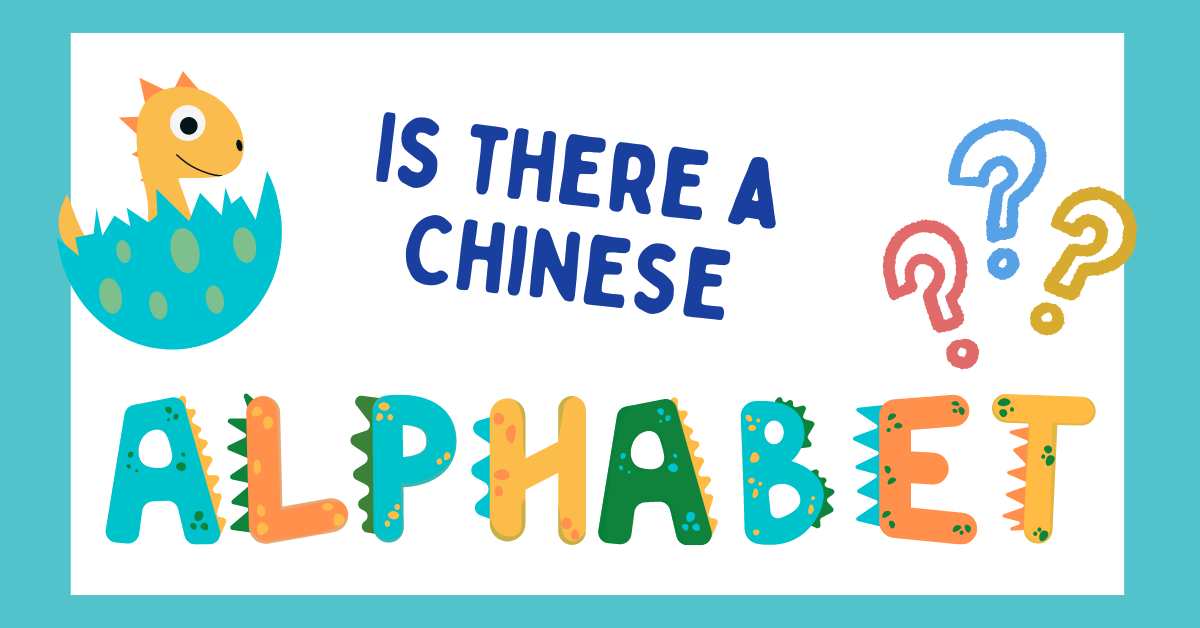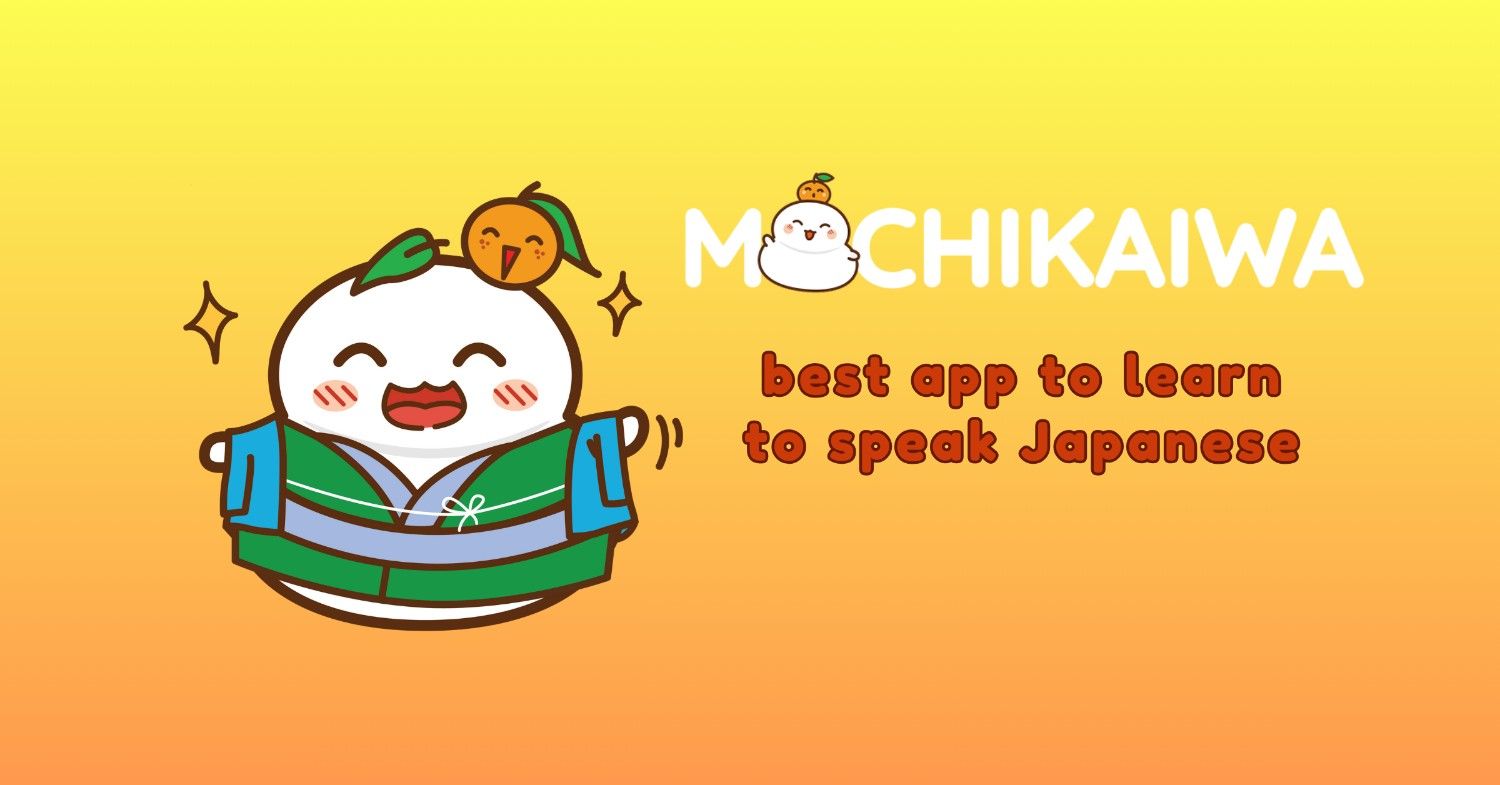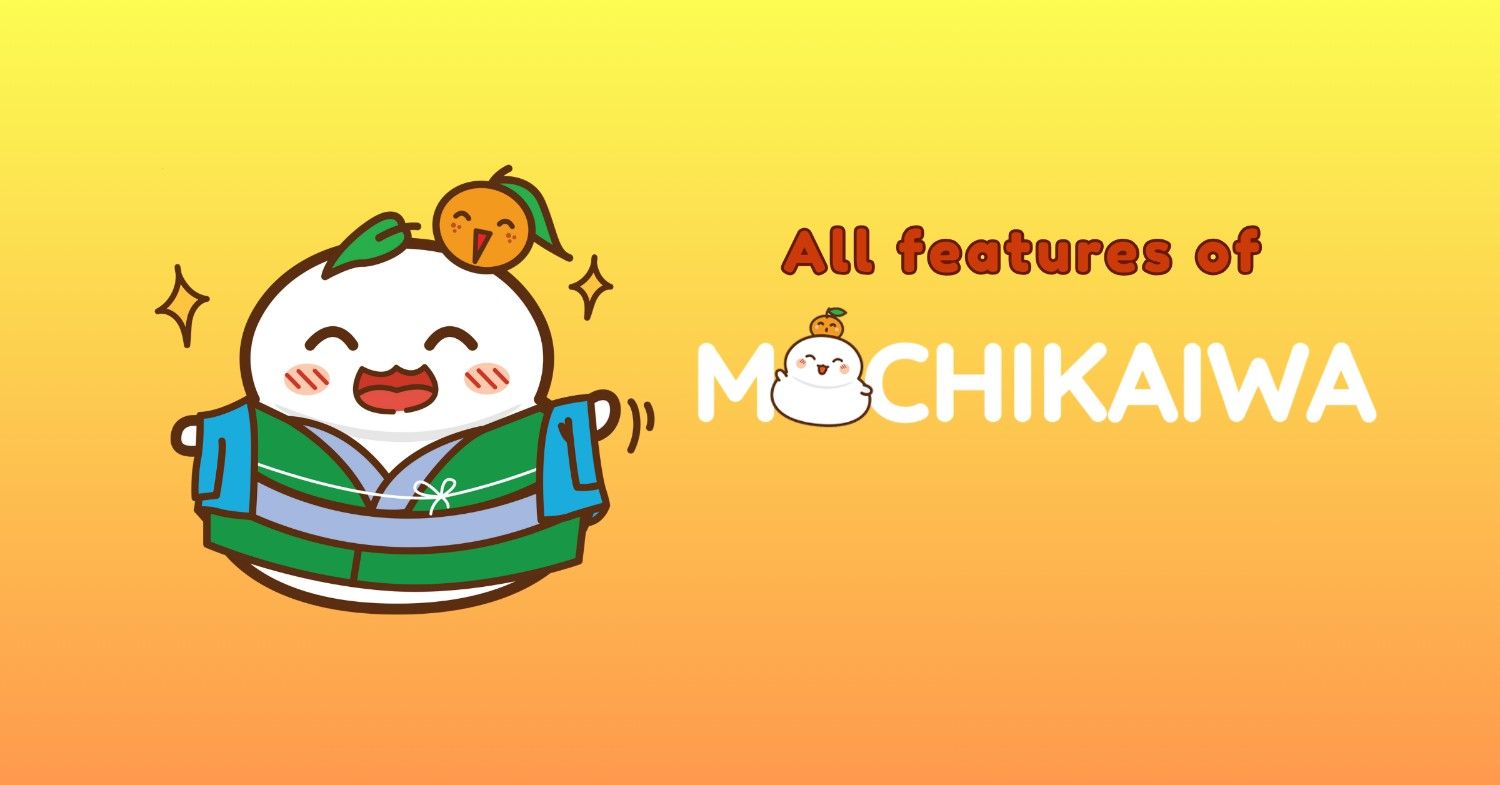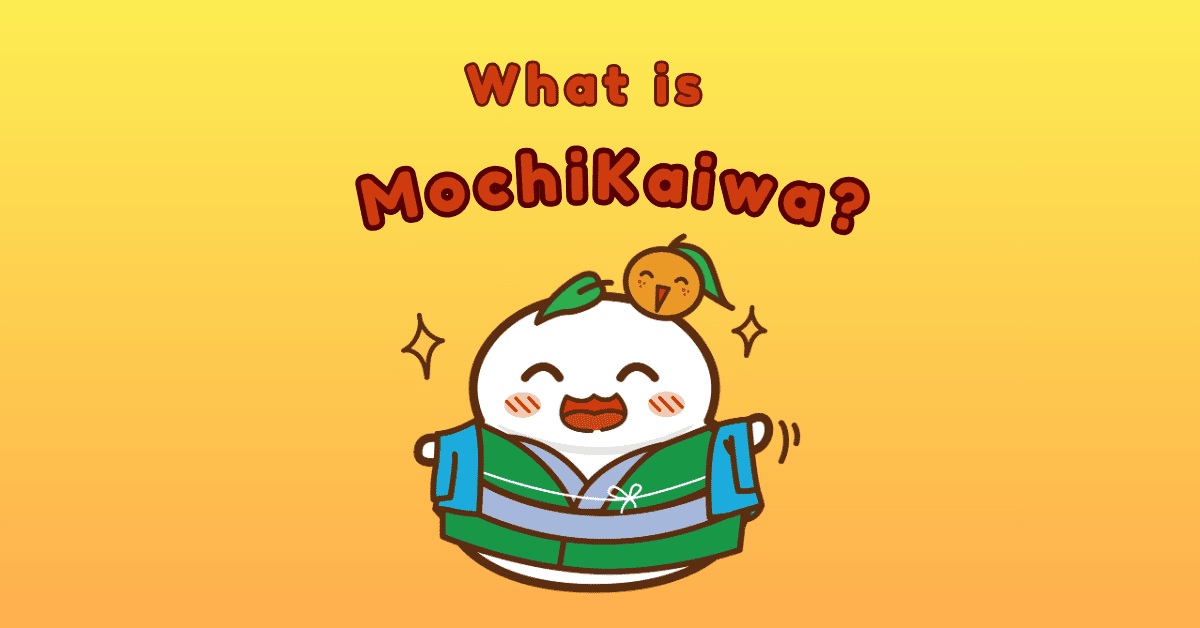In Japanese, the common way to say “thank you” is ありがとう (Arigatou). You definitely familiar with this phrase, which is used commonly in Japanese conversation. In this guide, however, we’ll show 10 other ways to say thank you in Japanese, each suitable for different contexts and levels of formality.
10 ways to say “Thank you” in Japanese
1. ありがとう – Arigatou
- Meaning: Thank you
- Romaji: Arigatou
This is perhaps the most universally recognized Japanese phrase for thank you. It’s casual and broadly used among friends, family, and peers. This version of thanks is informal and should generally be used in a relaxed context or with people you are familiar with.
2. ありがとうございます – Arigatou Gozaimasu
- Meaning: Thank you
- Romaji: Arigatou Gozaimasu
Stepping up a level in formality, this expression is a polite way to say thank you. It’s appropriate in almost any situation but is especially important in customer service interactions or when speaking to someone of higher status. This phrase carries a sense of professional and courteous acknowledgment.
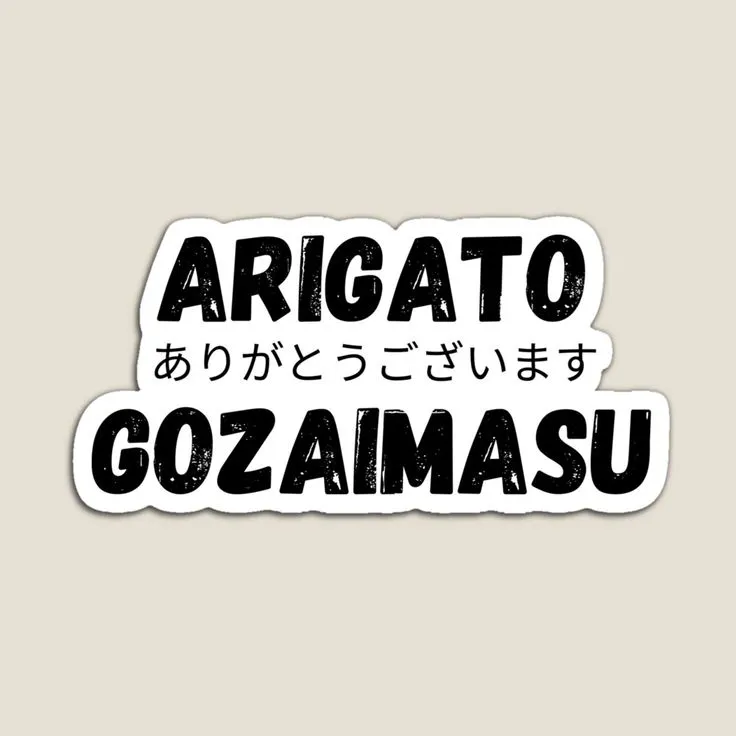
3. どうもありがとう – Doumo Arigatou
- Meaning: Thank you very much
- Romaji: Doumo Arigatou
By adding どうも (doumo), you increase the emphasis of your gratitude, translating roughly to “Thank you very much.” It’s still fairly informal and can be used in everyday situations where you feel a simple thanks might not suffice.
4. どうもありがとうございます – Doumo Arigatou Gozaimasu
- Meaning: Thank you very much
- Romaji: Doumo Arigatou Gozaimasu
This is a combination of politeness and strong gratitude. It’s very respectful and can be used in formal settings or when you are deeply grateful for someone’s help or generosity. This phrase would be apt after receiving a significant favor or in professional settings where high respect is to be conveyed.
5. 心から感謝します – Kokoro Kara Kansha Shimasu
- Meaning: Sincerely thank
- Romaji: Kokoro Kara Kansha Shimasu
Literally translating to “I thank you from the heart,” this phrase is used when you want to express sincere and deep gratitude. It’s formal and profound, making it suitable for expressing thanks in serious or deeply meaningful situations, such as receiving personal advice or after a significant personal event.
6. お世話になりました – Osewa Ni Narimashita
- Meaning: Thank you for helping me
- Romaji: Osewa Ni Narimashita
This phrase is often used to thank someone for their assistance or care over a period. It’s common in business and professional contexts, particularly when concluding a project or at the end of a business relationship. It acknowledges the person’s support and effort in assisting you.
7. 感謝しています – Kansha Shiteimasu
- Meaning: I am grateful
- Romaji: Kansha Shiteimasu
This formal statement is often used in written communications like emails or letters where deep appreciation needs to be conveyed. It’s particularly useful in professional communications, reflecting both humility and respect.
8. 助かりました – Tasukarimashita
- Meaning: You helped me
- Romaji: Tasukarimashita
This phrase means “You helped me,” and is used when someone has helped you out of a difficult situation. It’s an expression of gratitude that acknowledges someone’s direct impact on your life or work, often used among colleagues or friends.
9. 恩に着る – On ni Kiru
- Meaning: To feel oneself indebted to
- Romaji: On ni Kiru
This is a very formal and somewhat archaic way to say thank you, implying that you are indebted to someone for their kindness. While not commonly used in everyday conversation, it might appear in very formal writings or speeches, often to express a deep, lasting gratitude.
10. すみません – Sumimasen
- Meaning: “excuse me” or “I’m sorry”
- Romaji: Sumimasen
Although primarily used to mean “excuse me” or “I’m sorry,” in the right context “sumimasen” can also express gratitude. This is particularly true when someone goes out of their way to help you, and you wish to acknowledge both the imposition and their effort. It’s a versatile phrase, suitable in many contexts and reflecting an acute awareness of the other person’s convenience.
Casual thank you in Japanese
サンキュー – Sankyu (English)
Meaning: Thank you
Pronunciation: Sankyu is a Japanese slang version of the English “thank you”
About: This is very much a cool kid, slangy phrase that you might hear among young people, especially young men. As an English speaker, you should probably stick with just saying “thank you” or one of the other options on this list, but we’re including it in case you come across it in the wild!
あざす – Azasu
Meaning: Thanks! Cheers! (Cheers in the thanks sense, not in the drinking sense!)
Pronunciation: ah-zahs
About: Azasu is a super shortened arigatou gozaimasu, used mostly by school kids, in anime, and by young people hanging out with friends. This is informal slang for a quick thanks and shouldn’t be used with strangers or anywhere where someone might be offended by your lack of politeness (so not at work or with elders!).
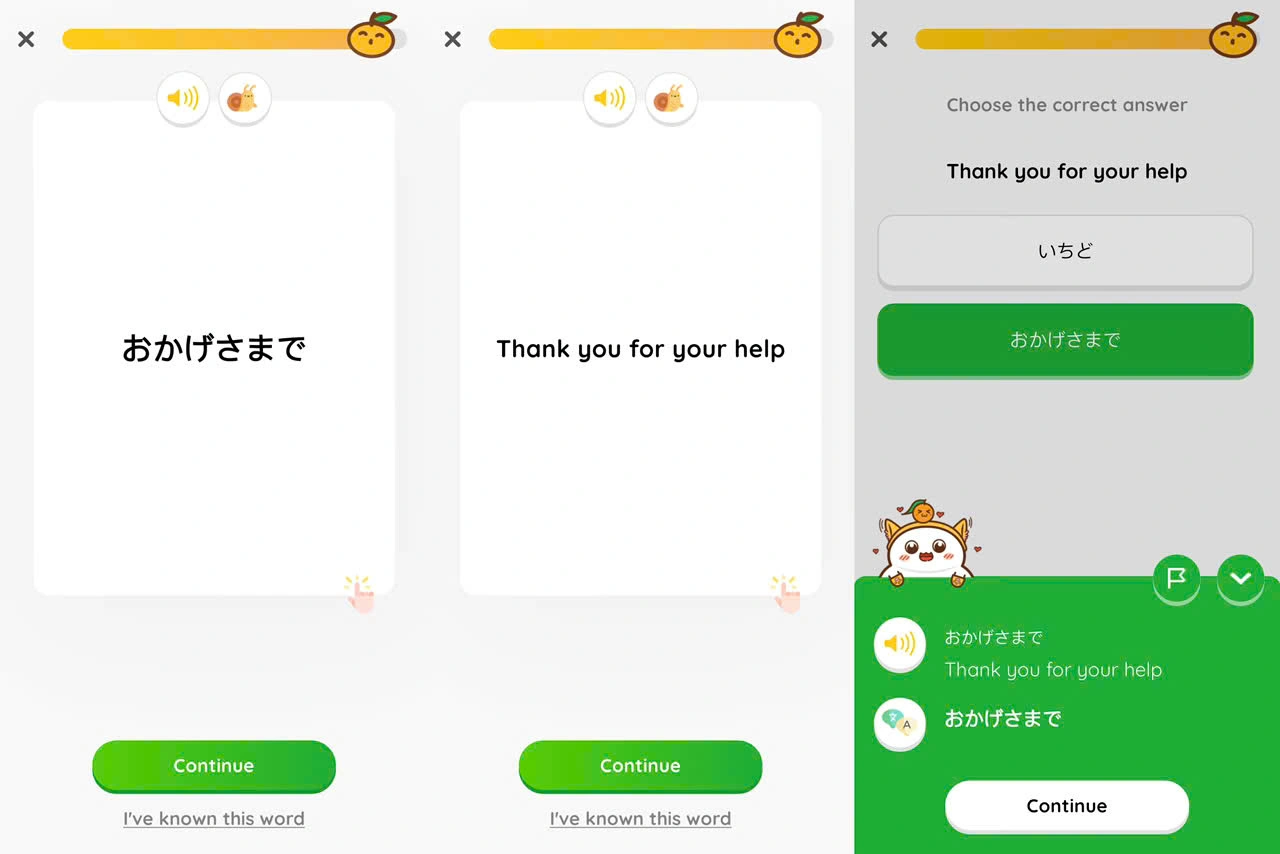
Want to learn how to say ‘thank you’ in Japanese? With MochiKanji, mastering polite expressions like ありがとう (Arigatou) and ありがとうございます (Arigatou gozaimasu) has never been easier. Download Mochikanji now!
Thank you in Japanese with action
Gifts
Gifting is also an important and complex aspect of Japanese culture and can be used as a way to say thank you. There are two times of year when it’s traditional to give gifts of gratitude in Japan, Ochugen in the summer and Oseibo at the end of the year. These would be the best times to give something in gratitude to a parent, teacher, co-worker, or manager that you feel you owe some gratitude. But that doesn’t mean you absolutely can’t give gifts another time of year.
Just know that you may be starting an endless cycle of minor gifting if you give someone something: small gifts given at other times, called okaeshi, are usually given sometime after someone gives you a gift and should total about half the value of whatever you received. This even extends to little things – for example, if your neighbor brings you food, it would be polite and normal to return the container with something in it to show your thanks!
If you receive a gift, don’t forget to accept it with both hands and wait until later to open it. And if you’re giving a team or a family something, know that it’s considered rude not to get everyone a gift.
Bow and say thank you in Japanese
Bowing culture in Japan dates back well over 1,000 years, it is used to say all sorts of things, from a quick acknowledgement of a shopkeeper to a deep bow of gratitude or respect. And saying thanks is certainly one way that bows are used.
In Japan, you bow from the waist and keep your back straight. The greater the angle of the bow, the more humble and respectful it is. Men keep their arms at their sides and women can do the same or fold one hand on top of the other in front of the body, below the belly button.
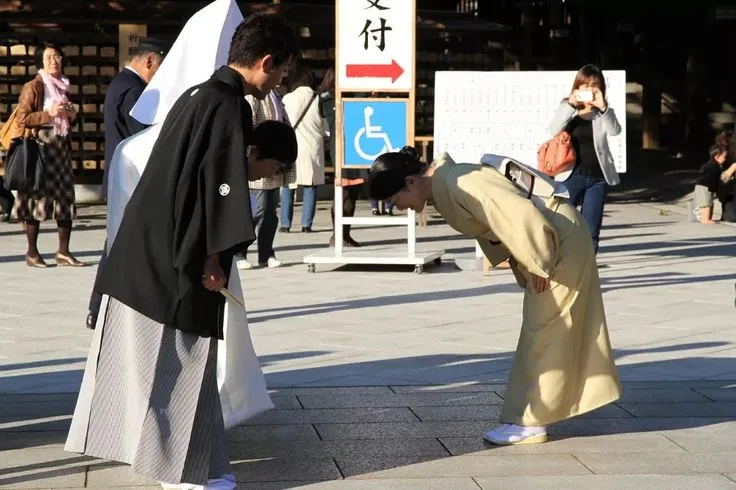
Most commonly, you would bow about 15 degrees for a casual bow or about 30 degrees in work situations, when greeting clients, and other more formal occasions. The deepest bow is more like 45 degrees and would only be used in a situation where you were deeply grateful, meeting someone very important, or apologizing for something big (like if you broke a treasured vase or needed a big favor).
Suggested ways to quickly learn vocabulary on saying thank you in Japanese
Practice speaking and writing regularly
Practicing is an important part so you can confidently use thank you phrases in Japanese. Regularly practicing speaking and writing sample sentences helps you become familiar with the correct usage of each phrase. You can:
Say the entire sample sentence yourself
This helps improve your language reflexes and pronunciation.
Rewrite the sample sentences
Rewriting helps you remember vocabulary and sentence structure more firmly. Write down sample thank you sentences in your notebook or on your computer to review and be more confident when using them.
Practice using it in real-life situations
Apply these thank you phrases to your daily life to feel the Japanese reaction and improve your communication skills:
Communicate with Japanese people
Use thank you phrases when shopping, eating, meeting friends or interacting with locals. For example, when buying something from a store, you can say “ありがとう” (Arigatou) to thank the service staff.
Communication at work
Use sample thank you sentences in communicating with colleagues, superiors and subordinates at work. For example, when receiving help from a colleague on a project, you can use “ありがとうございます” (Arigatou gozaimasu) to express gratitude.
Learn from diverse sources
View Japanese learning materials
Japanese textbooks and materials often provide lessons on gratitude and communication situations. You will not only learn how to say thank you fully, but also learn many other common communication sentences in Japanese in a systematic way. Some books I can recommend to you are: Genki and Minna no Nihongo.
Online Documentation
In addition to hard copy materials like books, you can also explore online resources like videos, blogs, or Japanese-specific websites to learn thank you phrases and how to use them in real life. A useful website that I recommend you try is MochiKanji – Learn Japanese.
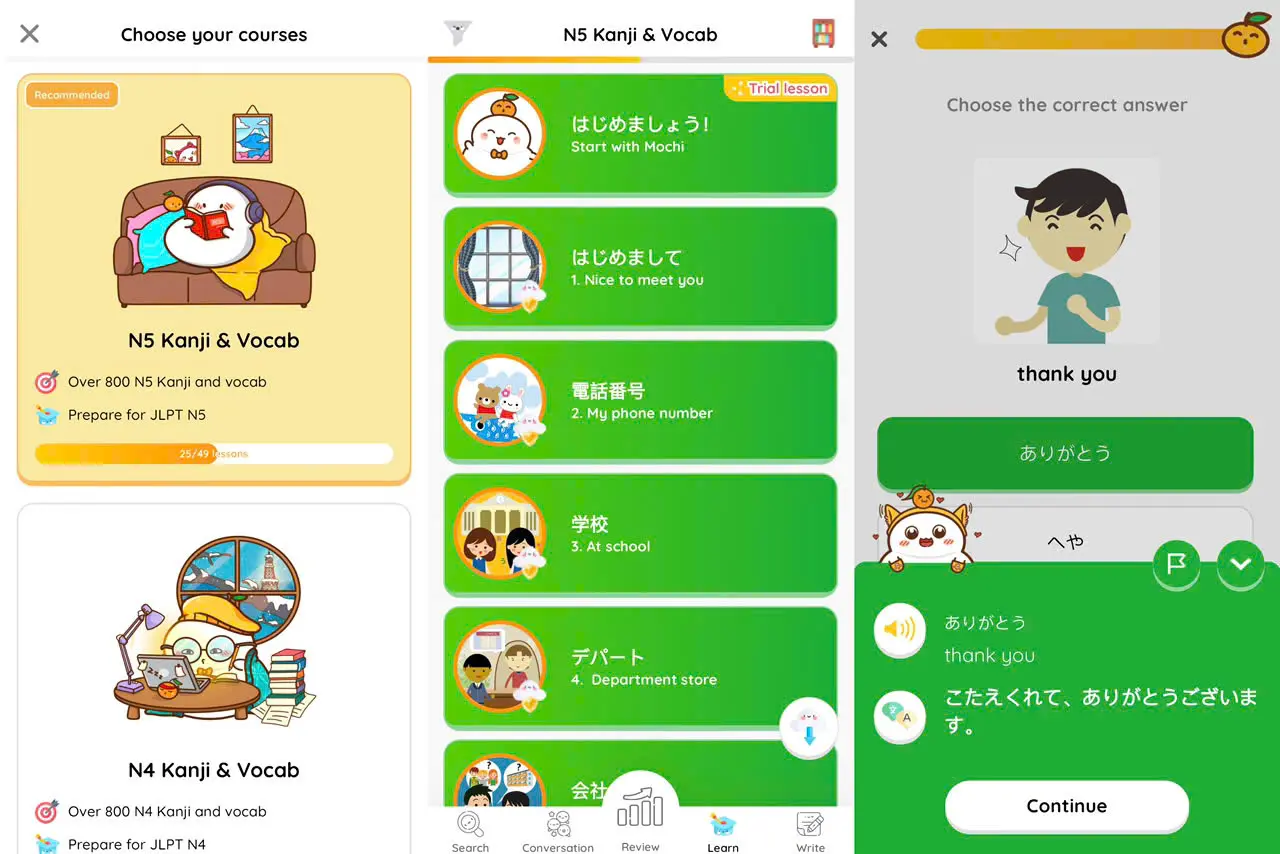
MochiKanji teaches vocabulary and Kanji by topic very reasonably. In addition, the website also has a conversation course that teaches conversations from basic to advanced so that you can improve your communication skills. The website also has a “Golden Time” feature based on the famous “Spaced Repetition” memorization method to determine the best time to review the lesson, based on your level of proficiency and the time elapsed since the last study.
In conclusion, mastering these various expressions of gratitude can make a significant difference in how you communicate and connect with Japanese speakers. Whether you’re a beginner or looking to polish your proficiency, integrating these phrases into your daily use will demonstrate both respect and appreciation for Japanese culture and its nuances.
FAQs
How do you politely say thank you in Japanese?
To politely say “thank you” in Japanese, you use ありがとうございます (Arigatou gozaimasu). This is a formal way to express gratitude and can be used in most situations, especially with people you don’t know well or in formal settings.
Should I say Arigato or Gozaimasu?
It depends on the situation. If you’re speaking casually to friends or someone you’re close with, ありがとう (Arigatou) is fine. For more formal or polite situations, you should say ありがとうございます (Arigatou gozaimasu).
How do I reply to Arigato?
A common reply to ありがとう (Arigatou) or ありがとうございます (Arigatou gozaimasu) is どういたしまして (Dou itashimashite), which means “You’re welcome.” In informal situations, you can also say something like いえいえ (Ie ie), which means “No problem” or “Don’t mention it.”
What is the slang for Arigato?
In casual speech, especially among young people, you might hear ありがと (Arigato) without the extended “u” sound at the end or even just あざっす (Azass), a very informal and shortened version of ありがとうございます. This is often used among close friends.

